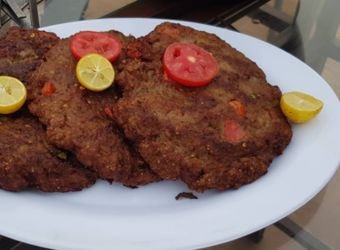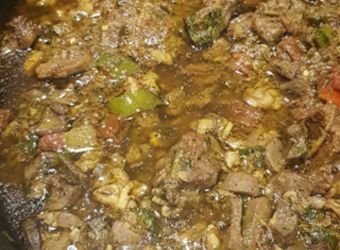Pakistanis love meat, be it mutton, beef, fish or chicken, which is reflected in their food, customs and cultural practices. If there is one thing which defines Pakistani food, it is meat. From biryani to kebabs, curries to rice, meat holds a special place in Pakistani cuisine. However, Pakistan’s meat consumption goes beyond eating. It has deep social, cultural and economic roots. One major factor of us Pakistanis having meat as a featured ingredient is due to our religion and geographical location which is ideal for livestock rearing. Religion allows us to have certain kinds of animals as food, and Eid ul Adha, the festival of sacrifice is an event where Muslims sacrifice animals and distribute meat amongst the poor and needy. It is an occasion where all festivities begin and end with meat with elaborate Eid Dinners and rooftop Bar B Ques.
Meat is a significant symbol of hospitality and generosity in Pakistani culture while also perceived as a symbol of power and prosperity. During social events, gatherings, wedding and other festive events it is common to serve meat dishes. It is seen as a luxury item and people take pride in serving it to their guests. The hosts lay out an extensive dinner table with all sorts of dishes: chicken biryani, mutton karahi, Bihari kebab, aloo qeema, roasted mutton leg, and qorma (almond enriched mutton curry). Your social status is directly proportional to the number of meat dishes you serve to your guests! Not just the special occasions, Pakistanis are fond of eating meat every day as well. Nihari (a slow cooked spicy beef stew) is a famous breakfast items served with hot naans. While halwa puri chooley are equally celebrated, nothing beats murgh chooley (chickpeas with chicken). To add taste to lentils and vegetables, they are also cooked with juicy chunks of meat like palak gosht, and daal gosht. Meat be it beef, or mutton or chicken, is always the star of the show at every meal, while vegetables are there just to accompany or to be cooked or stuffed along with meat like Aloo Gosht, Gobi Gosht, Qeema Bharay Karelay (bitter gourd stuffed with minced meat), stuffed capsicum with minced meat, Matar Qeema.


Each province of Pakistan has its own meat specialty. Peshawar, KPK is known for its juicy beef and lamb chapli kebabs, and namkeen gosht. While Quetta, Balochistan is known for sajji (whole chicken or mutton slow roasted) and khaddi kebab (whole mutton marinated with spices, stuffed with rice and cooked underground over coals) a star dish of all the Quetta weddings, is an absolute show stopper! While Punjab is known for gravies and curries like paya (bone broth cooked overnight with spices and meat), kunna (mutton cooked in spices in a clay pot, thickened with wheat flour), murgh choley, and yakhni pulao (rice cooked in meat broth). Sindh, located near the sea offers a great seafood variety like fish biryani, prawn karahi, masala crabs and the likes. Karachi however, is not a state, but a city known for its flavorful dishes from all around the subcontinenet. The famous nalli biryani, maghaz nalli nihari, qorma, Haleem and spicy brain masala are just the tip of the iceberg.
Pakistan’s love for meat has also proved to be fruitful for its economy – due to its geographical advantages, it has the land to raise livestock and export meat. It is one of the largest countries to export halal meat with the meat industry rapidly growing and being high in demand. Meat is deeply ingrained in the Pakistani culture that there is nothing that would make Pakistanis stay away from meat!


